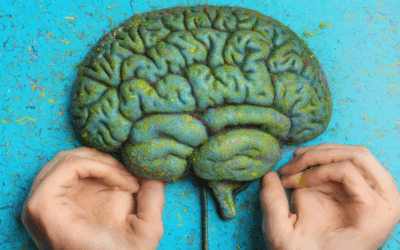Mental strength training is often overlooked in favor of physical conditioning, yet it plays a pivotal role in achieving resilience, focus, and peak performance across various facets of life. Whether you’re an athlete navigating the pressures of competition, a professional striving for career excellence, or someone simply seeking to overcome daily challenges, cultivating mental toughness is a cornerstone of sustained success. This comprehensive guide delves into the essential strategies, exercises, and principles that can help you build mental fortitude, enabling you to remain composed under pressure, maintain sharp concentration, and embrace a growth mindset. From understanding the core components of mental toughness to exploring the role of a mental strength coach, this article offers actionable insights and proven techniques to help you master mental strength training and unlock your full potential.

The 7 Cs of Mental Toughness
Mental toughness is a critical skill that enables individuals to handle life’s challenges with resilience and adaptability. It encompasses a unique combination of qualities that allow people to stay composed under pressure, embrace opportunities for growth, and maintain a positive outlook despite adversity. Below are the 7 core components of mental toughness:
- Conviction – This is the foundation of mental toughness. It involves unwavering belief in oneself and your abilities, as well as a strong sense of purpose and direction in life. Conviction helps you stay focused and confident even when faced with uncertainty or setbacks.
- Compassion – Mental toughness doesn’t mean lacking empathy. Compassion allows you to understand and connect with your own feelings as well as those of others. It enables you to approach challenges with kindness and support, rather than judgment or criticism.
- Connection – Building deep, meaningful relationships is essential for mental toughness. Strong connections provide emotional support, reduce feelings of isolation, and foster a sense of belonging. These relationships can act as a source of motivation and encouragement during difficult times.
- Control – Mental toughness involves managing your emotions and reactions to external events. It’s about maintaining control over your thoughts, words, and actions, even in stressful situations. This helps you avoid letting negative emotions cloud your judgment or hinder your progress.
- Commitment – A commitment to continuous growth and improvement is a hallmark of mental toughness. It means staying dedicated to your goals, embracing new challenges, and persisting through failures. Commitment keeps you motivated and drives you to push beyond your limits.
- Creativity – Mental toughness often requires thinking outside the box. Creativity allows you to approach problems from different angles and find innovative solutions. It’s about generating ideas and perspectives that can transform obstacles into opportunities.
- Curiosity – An insatiable curiosity about the world around you fosters a mindset that embraces learning and discovery. Curiosity drives personal development, keeps your mind sharp, and helps you stay open to new experiences and possibilities.
Mental toughness is not about ignoring emotions or dismissing challenges. Instead, it’s about developing the tools and mindset to navigate life’s ups and downs with grace, strength, and resilience. By cultivating these 7 Cs, you can build a robust mental foundation that empowers you to thrive in any situation.
What Are the 4 Types of Mental Toughness?
Mental toughness is a crucial skill that enables individuals to manage stress, overcome challenges, and maintain emotional well-being. The “4Cs model” is a widely recognized framework that defines mental toughness through four core components:
- Confidence : This component involves believing in one’s abilities and maintaining a positive outlook, even in the face of adversity. Confident individuals tend to view challenges as opportunities rather than threats, which helps them navigate difficult situations with resilience.
- Control : Control refers to the ability to manage emotions and reactions effectively. People with high control skills remain calm under pressure and can regulate their stress responses, allowing them to think clearly and make rational decisions during challenging times.
- Commitment : Commitment is about staying dedicated to goals and persisting through obstacles. It involves a strong sense of purpose and the willingness to endure hardships in pursuit of long-term objectives, which contributes significantly to personal growth and resilience.
- Challenge : This component involves seeking out and embracing opportunities for growth through difficult experiences. Mental tough individuals view challenges as chances to learn and improve, fostering a mindset that thrives on continuous development.
By cultivating these four components, individuals can enhance their mental toughness, leading to greater emotional stability and success in various aspects of life.

What Does a Mental Strength Coach Do?
A mental strength coach is a specialized professional who focuses on helping individuals, often athletes, develop the mental resilience, focus, and confidence needed to excel in their performances. Unlike traditional coaches, a mental strength coach operates primarily in the realm of psychological preparation, working alongside athletes to enhance their mental game.
- Mentorship and Guidance: A mental strength coach works closely with clients to build a strong mental foundation, helping them overcome challenges, manage stress, and maintain a positive mindset. This involves teaching techniques like visualization, mindfulness, and self-talk to foster mental clarity and emotional stability.
- Pre-Performance Routine Development: Coaches assist in creating and refining pre-shot or pre-play routines tailored to the individual’s needs. These routines help athletes establish control and consistency, reducing performance anxiety and enhancing focus during critical moments.
- Competition Mindset Training: Mental strength coaches help athletes develop a resilient mindset, enabling them to stay composed under pressure. This includes strategies for handling setbacks, maintaining composure during high-stakes situations, and managing expectations.
- Behavioral Adjustment: Coaches work on aligning an athlete’s mindset with their goals, encouraging a proactive approach to problem-solving and continuous improvement. This may involve addressing negative thought patterns and replacing them with positive, empowering beliefs.
The role of a mental strength coach extends beyond just sports; it’s about equipping individuals with lifelong tools to navigate life’s challenges with strength and poise. By focusing on mental preparedness, these coaches empower their clients to perform at their best, regardless of the situation.

How to Stop Feeling Mentally Weak
Mental strength is a skill that can be developed with consistent effort and the right strategies. Here’s a comprehensive guide to help you build resilience and overcome mental weaknesses:
1. Cultivate a Strong Mindset
- Positive Affirmations: Start your day with empowering statements. Write down affirmations like “I am resilient” or “I embrace challenges as growth opportunities” and recite them daily.
- Visualization Practice: Spend 5 minutes each evening visualizing your successes. Imagine yourself overcoming obstacles and relish the emotions of achievement.
2. Prioritize Physical Health
- Regular Exercise: Begin with a 10-minute walk and gradually incorporate more intense activities like yoga or meditation to boost endorphins and improve mood.
- Mindful Breathing: Practice deep breathing exercises to reduce stress and center your mind. Apps like Headspace can guide you through sessions.
3. Set Clear and Achievable Goals
- Break Down Goals: Create specific, actionable steps. For instance, aim to speak in front of a small group to conquer social anxiety before moving to larger audiences.
- Track Progress: Keep a journal to document your achievements and reflect on your growth, which reinforces motivation and resilience.
4. Build a Supportive Social Network
- Surround Yourself with Positives: Limit time with negative influences and seek out mentors or peers who inspire and uplift you.
- Seek Guidance: Lean on trusted friends, family, or professionals who can offer support and constructive feedback during challenging times.
5. Practice Gratitude Daily
- Gratitude Journaling: Dedicate 5 minutes each morning to note three things you’re grateful for. This shifts your focus to positivity and builds a habit of appreciation.
6. Learn from Mistakes and Failures
- Foster a Growth Mindset: View setbacks as opportunities to learn and grow. Shift your focus from perfectionism to progress and understanding.
7. Take Calculated Risks
- Embrace discomfort: Step out of your comfort zone to build confidence. Assess potential outcomes and learn from both successes and failures.
8. Limit Negative Inputs
- Curate Content: Reduce exposure to negative influences online by setting screen time limits and unfollowing accounts that drain your energy.
9. Practice Self-Compassion
- Treat Yourself Kindly: Replace self-criticism with kindness. Acknowledge your efforts, regardless of progress, to reduce stress and promote well-being.
10. Seek Professional Help When Needed
- Therapeutic Support: Consider consulting a therapist if feelings of weakness persist. They can provide personalized strategies and a safe space to discuss challenges.
Building mental strength is a journey that requires patience and persistence. By integrating these strategies into your daily life, you can develop resilience and overcome mental weaknesses, leading to a more fulfilling life.
How to Fix a Weak Mentality
Building a strong mental foundation requires intentional effort and discipline. Here are proven strategies to cultivate resilience and mental strength:
- Set Small, Achievable Goals : Start with manageable objectives to boost confidence and motivation. Celebrate each milestone to reinforce success.
- PRACTICE Positive Thinking : Replace negative thoughts with positive affirmations. Train your mind to see challenges as opportunities rather than obstacles.
- Be Kind to Yourself : Treat yourself with compassion. Acknowledge imperfections and learn from mistakes without self-criticism.
- BUILD A SUPPORTIVE CIRCLE : Surround yourself with positive influences who inspire and uplift you. Limit exposure to negativity.
- IMPROVE PHYSICAL HEALTH : Regular exercise, a balanced diet, and adequate sleep enhance mental clarity and emotional well-being.
- PRACTICE GRATITUDE DAILY : Take a few moments each day to appreciate the positives in your life. Journaling can help solidify this habit.
- LEARN FROM MISTAKES : View failures as stepping stones to growth. Focus on progress rather than perfection to build mental toughness.
- EXPLORE MINDFULNESS : Incorporate mindfulness or meditation practices to manage stress and improve emotional regulation.
- SEEK SUPPORT WHEN NEEDED : Don’t hesitate to reach out to trusted individuals or professionals for guidance and encouragement.
- EMBRACE A GROWTH MINDSET : Believe that your abilities can grow with effort and dedication. This mindset fosters resilience and adaptability.
- BE OPEN TO VULNERABILITY : Acknowledge your emotions and vulnerabilities. It’s okay to ask for help and seek guidance when needed.

How to Fix Brain Fog
Brain fog refers to a sensation of mental fatigue, confusion, or lack of focus. It can affect your ability to concentrate, remember things, or make decisions. While it can be temporary, chronic brain fog may indicate underlying issues that require attention. Here’s how you can address and fix brain fog effectively:
Nutrition
A balanced diet rich in essential nutrients is crucial for brain health. Incorporate the following foods into your daily routine:
- Fatty fish (e.g., salmon, mackerel) – High in omega-3 fatty acids
- Nuts and seeds (e.g., almonds, chia seeds)
- Berries (e.g., blueberries, strawberries) – Rich in antioxidants
- Leafy green vegetables (e.g., spinach, kale)
- Eggs – A great source of choline
- Avocados – Contains healthy fats and vitamin E
- Coffee or green tea – May improve alertness and focus
Avoid processed foods, excessive sugar intake, and refined carbohydrates, as they can lead to energy fluctuations and contribute to brain fog.
Hydration
Dehydration can significantly impair cognitive function. Ensure you’re drinking enough water throughout the day. Consider:
- Drinking herbal teas
- Consuming water-rich fruits like cucumbers, oranges, and watermelon
- Maintaining a steady intake of fluids, especially if you’re active
Sleep
Quality sleep is essential for brain function. Aim for 7-9 hours of quality sleep each night. To improve sleep hygiene:
- Establish a consistent bedtime routine
- Create a relaxing pre-sleep ritual, such as reading or meditating
- Ensure your bedroom is dark, quiet, and cool
- Limit screen time before bed
Exercise
Physical activity promotes better blood flow to the brain, which can improve focus and cognitive clarity. Engage in regular moderate-intensity exercises like:
- Walking
- Yoga
- Swimming
- Dance
- Strength training
- High-intensity interval training (HIIT)
Even short sessions can make a difference, so aim for at least 30 minutes most days of the week.
Mindset and Stress Management
Stress and negativity can exacerbate brain fog. Practice a positive mindset and incorporate stress-relieving techniques:
- Practice gratitude daily
- Set realistic goals and celebrate small achievements
- Engage in mindfulness or meditation
- Journal your thoughts and feelings
- Take regular breaks to recharge
Environment
Your surroundings play a significant role in your focus and concentration. Create a supportive environment by:
- Keeping your workspace organized and clutter-free
- Minimizing distractions (e.g., turn off notifications)
- Ensuring good ventilation and airflow
- Using noise-canceling headphones or white noise machines
Conclusion
Addressing brain fog requires a holistic approach that combines nutrition, hydration, physical activity, and mental well-being. By implementing these strategies consistently, you can improve your cognitive function and overall quality of life. Remember, it’s not just about fixing the problem but creating habits that support long-term health and productivity.




0 Comments